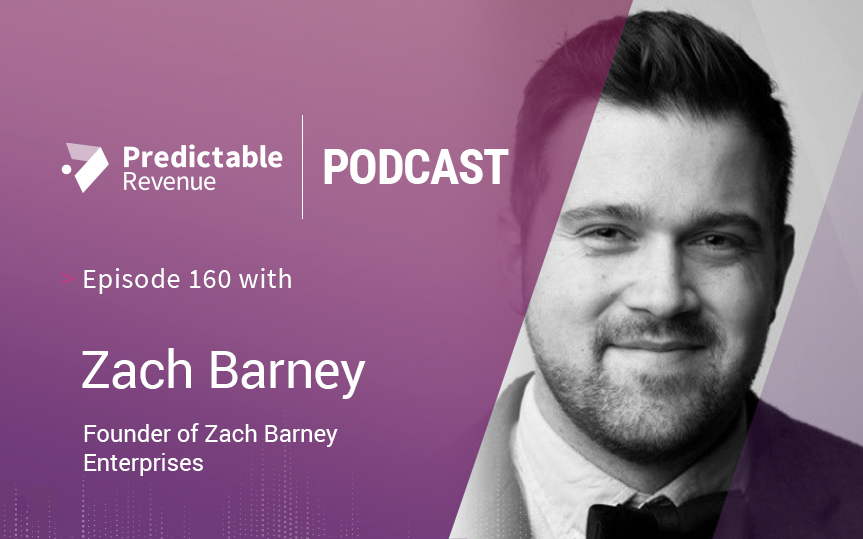Building a Sales Team: What You Need to Get Right Early On

Let’s face it, growth is hard.
You have a great idea, you start a company, you build a product…and now you gotta sell it. To real paying customers. Over and over again.
When you’re embarking on your company’s sales journey, there’s a lot you have to consider. Growing the team, getting the right tools in place, nailing your initial messaging – it’s a lot to consider. And, to make matters slightly more difficult, it never feels like there’s time to do it all in.
Getting on the phone and closing a deal will always feel like the most important, and pressing, issue.
But, there’s a lot of stuff you can do early to build a solid sales infrastructure – regardless of how much time you feel like you have. In fact, nailing a few key things early will save you time over the long run…and hello you make money.
Sounds pretty sweet, doesn’t it?
“I work with a lot of startup founders – I’ve done the startup thing for the bulk of my career. And there’s always this tendency to go cheap, to bootstrap. There’s a romanticism in it, you know?” says Zach Barney, sales consultant, on a recent edition of The Predictable Revenue Podcast.
Of course, I think it’s important to be resilient and not rely on the most expensive toy to get you there early on. But, there are definitely exceptions. There are things that you should nail early on or else you will pay for them later on down the road.

The benefits of thinking about sales infrastructure early
Process can, at times, feel like a dirty word. You’re sprinting for the goal – closed deals – and process just gets in the way, right?
Wrong.
Even at an early stage, process can be a benefit. And, yes, there are a lot of different processes one could follow. There are no shortage of books and – cough, cough, – blogs discussing the sales process that’s just right for your company.
But, here’s the rub: there’s no perfect process, especially at an early stage. The trick is to be thinking about it, and experimenting with the aspects you like…and ignoring the aspects you don’t.
“There is not a process when you are a brand new company,” says Barney.
However, if you aren’t taking the opportunity to figure out what that process should be, with your early sales people, you’re missing the mark. And, it’s going to cost you.
Furthermore, adds Barney, process will help you when you’re raising capital. For instance, it is true that most VCs want to see traction – so you have to get those early sales numbers in. But, right after looking at the traction you’ve received, they’re going to want to see your plan for growth. And that plan will include your idea for how to scale your sales team.
They’re going to be asking for the path to predictability. How do you go from that $1 million to $10 million? How are you going to get there?” says Braney.
If you haven’t been utilizing all of the opportunities to track data, that you’re gathering from every customer interaction, and from every email that you send, then when it comes time to scale your team and you’re going to be doubling back to get these plans in place.
The almighty CRM system
According to Barney, chief amongst the things you should nail early on is the right CRM setup. Now, the “right” CRM setup can be a difficult thing to define – it’s going to be different for different companies.
But, warns Barney, the key is to invest early and avoid bouncing from product to product as you start making more money.
“When you’re an early startup and don’t have a lot of money, you tend to be tempted to go with whatever’s free out there. And there are a lot of really good looking semi-functional free CRMs out there,” says Barney.
The problem is, your sales team is not going to want to want to use them as you grow. So you’re going to ultimately have to migrate, most likely, to Salesforce or maybe Microsoft Dynamics. That process of migrating all of that data is a pain in the butt. And the money that you saved initially will end up getting spent when you start moving all that data back over.
If you don’t migrate that data over properly, you run the risk of losing valuable intel that your growing sales team is, surely, going to want.
In fact, they’re going to need it.
They’re going to want to know, for example, who your buyer persona is. For a real sales leader, they’re going to want to dive in and get more data. And if you don’t have that data to give them, then they are starting from scratch and you’re setting them back several months in time while they figure things out and get ramped up.
Getting the right data
Okay, so, what is the right data, then? A CRM system like Salesforce can capture just about everything. But, everything isn’t necessarily what your young, growing sales team needs.
What data must you capture?
According to Barney, it is the straightforward “contact” information such as:
- Full name
- Phone number
- Work email address
- Social media profiles
In addition to that fundamental information, Barney says your CRm should also be capturing the stages of your sales cycle, along with the rules that govern each stage (for example, how a lead qualifies for that stage).
“I don’t care what the names of your stages are. You’ve got to have defined stages – with definitions of what it means to be in that stage,” says Barney.
So you know, as time goes on, what percentage of people that get to a certain stage move on and, ultimately, close. That data allows you to forecast correctly – for example, you know your team’s walking into the quarter with $3 million of pipeline and, based on your defined stages, you know how much of that is going to close. That kind of information, even for a small company, is very powerful.
For more on Barney’s thoughts on early-stage sales team building – including the importance of buyer personas and tracking what messaging is resonating, check out the rest of his interview on The Predictable Revenue Podcast.
NO TIME TO READ?
Listen On:
Experience and a lot of testing have shown us that it is possible to create email templates that people actually resonate with.
You don’t have to figure it out alone, whether you’re starting off as a sales representative, looking to improve your game or providing your team with expert advice, we have your back!


